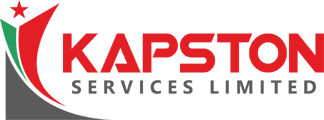Effective Cost Management in Integrated Facility Management
As the fast-paced Fourth Industrial Revolution dawns, the effective maintenance and management of a facility are becoming increasingly important. Buildings are getting smarter and technology is getting more sophisticated, which needs to be managed effectively to avoid business disruption and leverage data insights. Facilities managers are responsible for ensuring that the physical infrastructure of the business is running as it should, as well as identifying areas for greater efficiency and cost-saving. One of the key aspects of successful IFM implementation is effective cost management. By carefully controlling and reducing costs, without impacting customer experience, organizations can enhance their financial performance while ensuring the delivery of high-quality facility services.
In this article, we will explore strategies and best practices for cost management in Integrated Facility Management.
- Conduct a Comprehensive Cost Analysis : To effectively manage costs, it is essential to have a clear understanding of all the expenses associated with facility management. Conduct a detailed analysis of costs across various areas such as maintenance, energy consumption, cleaning services, security and vendor management. This analysis will provide insights into cost drivers and help identify potential areas for cost reduction and optimization.
- Establish Key Performance Indicators (KPIs) : Define and establish KPIs that align with your organization's objectives and financial goals. KPIs could include metrics such as cost per square foot, energy consumption per unit, maintenance cost per asset and vendor performance. Regularly monitor these KPIs to identify cost-saving opportunities and measure the effectiveness of cost management initiatives.
- Implement Energy Efficiency Measures : Energy costs can be a significant expense in facility management. Implement energy-efficient practices such as installing LED lighting, optimizing HVAC systems, and using smart sensors for lighting and climate control. Conduct regular energy audits to identify areas where energy consumption can be reduced. Energy-saving initiatives not only help in cost reduction but also contribute to sustainability goals.
- Optimize Maintenance Strategies : Implement a proactive maintenance approach to prevent costly breakdowns and unplanned repairs. Develop a preventive maintenance
schedule based on asset condition assessments and manufacturer recommendations. Regularly inspect and maintain critical equipment to extend their lifespan and minimize
replacement costs. Additionally, consider implementing a computerized maintenance management system (CMMS) to streamline maintenance processes, track work orders and identify trends for cost optimization. - Streamline Vendor Management : Vendor management is a vital aspect of cost management in IFM. Evaluate vendor contracts regularly to ensure competitive pricing and
service quality. Consolidate vendors where possible to leverage volume discounts. Establish performance metrics and service level agreements (SLAs) to monitor vendor performance and address any issues promptly. Regularly review vendor contracts to identify potential cost- saving opportunities and renegotiate terms if necessary. - Integrate Technology Solutions : Leverage technology to streamline facility management processes and reduce costs. Integrated facility management software can help automate workflows, centralize data and improve decision-making. Utilize Internet of Things (IoT) devices for real-time monitoring of energy usage, occupancy levels, and equipment performance. Data-driven insights from these technologies enable proactive cost management strategies and better resource allocation.
- Continuously Monitor and Evaluate : Cost management in IFM is an ongoing process. Regularly monitor expenses, review budgetary performance, and identify variances. Conduct periodic audits to validate cost-saving initiatives and identify areas for further improvement. Analyze trends, benchmark against industry standards, and seek opportunities for innovation and cost optimization.
Effective cost management is essential for successful Integrated Facility Management. By conducting comprehensive cost analysis, establishing KPIs, implementing energy efficiency measures, optimizing maintenance strategies, streamlining vendor management, utilizing technology solutions, and continuously monitoring and evaluating performance, organizations can achieve substantial cost savings while ensuring the delivery of high-quality facility services. Proactive cost management not only improves financial performance but also enhances operational efficiency, sustainability, and stakeholder satisfaction in the long run.
Nitya Menon
Head Facilities and Procurement

